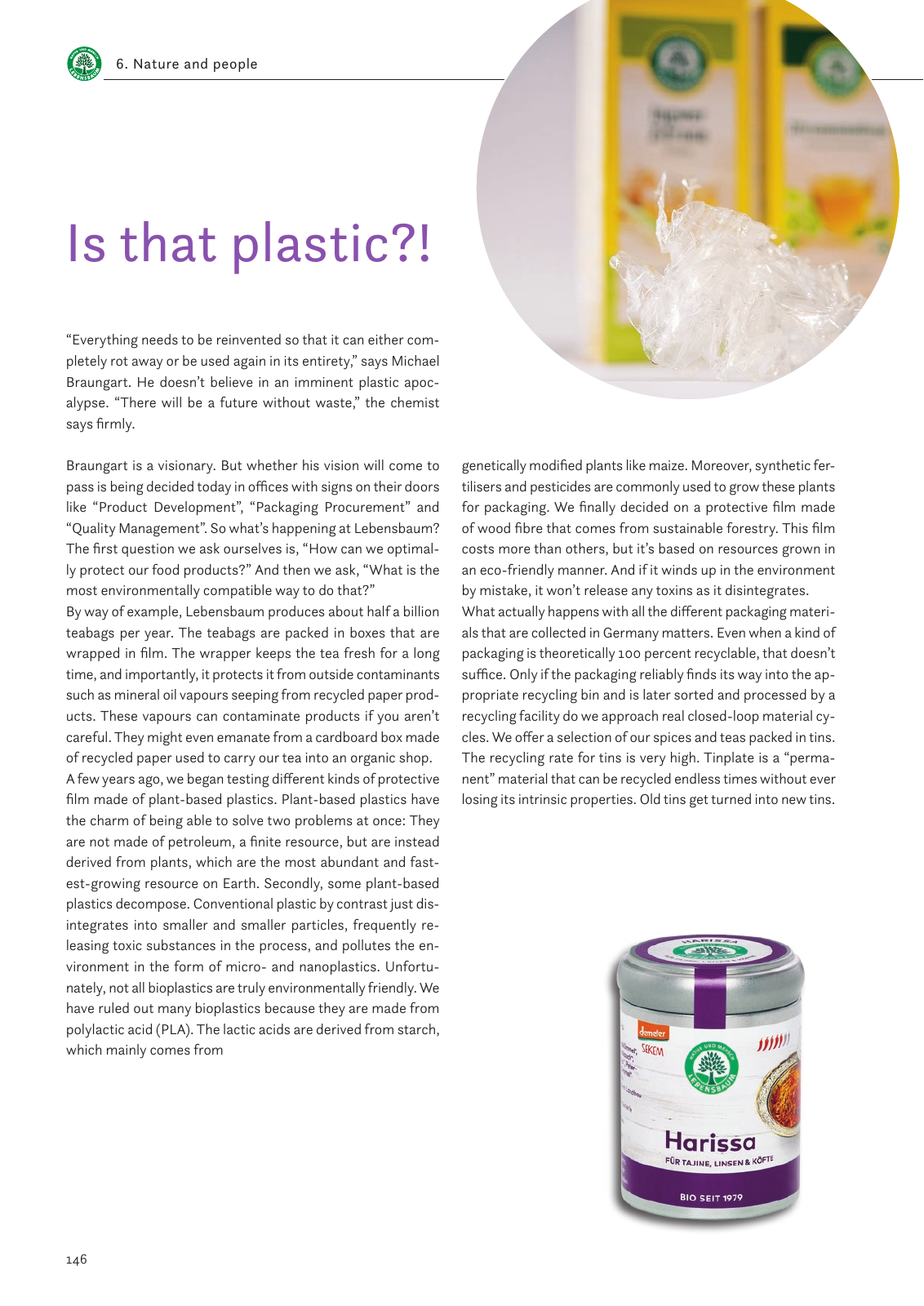146 Everything needs to be reinvented so that it can either com pletely rot away or be used again in its entirety says Michael Braungart He doesn t believe in an imminent plastic apoc alypse There will be a future without waste the chemist says firmly Braungart is a visionary But whether his vision will come to pass is being decided today in offices with signs on their doors like Product Development Packaging Procurement and Quality Management So what s happening at Lebensbaum The first question we ask ourselves is How can we optimal ly protect our food products And then we ask What is the most environmentally compatible way to do that By way of example Lebensbaum produces about half a billion teabags per year The teabags are packed in boxes that are wrapped in film The wrapper keeps the tea fresh for a long time and importantly it protects it from outside contaminants such as mineral oil vapours seeping from recycled paper prod ucts These vapours can contaminate products if you aren t careful They might even emanate from a cardboard box made of recycled paper used to carry our tea into an organic shop A few years ago we began testing different kinds of protective film made of plant based plastics Plant based plastics have the charm of being able to solve two problems at once They are not made of petroleum a finite resource but are instead derived from plants which are the most abundant and fast est growing resource on Earth Secondly some plant based plastics decompose Conventional plastic by contrast just dis integrates into smaller and smaller particles frequently re leasing toxic substances in the process and pollutes the en vironment in the form of micro and nanoplastics Unfortu nately not all bioplastics are truly environmentally friendly We have ruled out many bioplastics because they are made from polylactic acid PLA The lactic acids are derived from starch which mainly comes from 6 Nature and people Is that plastic genetically modified plants like maize Moreover synthetic fer tilisers and pesticides are commonly used to grow these plants for packaging We finally decided on a protective film made of wood fibre that comes from sustainable forestry This film costs more than others but it s based on resources grown in an eco friendly manner And if it winds up in the environment by mistake it won t release any toxins as it disintegrates What actually happens with all the different packaging materi als that are collected in Germany matters Even when a kind of packaging is theoretically 100 percent recyclable that doesn t suffice Only if the packaging reliably finds its way into the ap propriate recycling bin and is later sorted and processed by a recycling facility do we approach real closed loop material cy cles We offer a selection of our spices and teas packed in tins The recycling rate for tins is very high Tinplate is a perma nent material that can be recycled endless times without ever losing its intrinsic properties Old tins get turned into new tins

Hinweis: Dies ist eine maschinenlesbare No-Flash Ansicht.
Klicken Sie hier um zur Online-Version zu gelangen.
Klicken Sie hier um zur Online-Version zu gelangen.